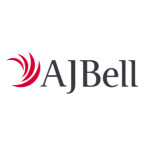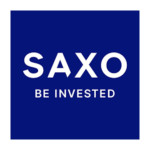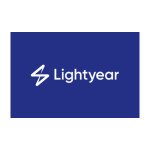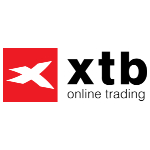How To Buy Shell Stocks & Shares
Buy Shell (SHEL.) Stocks & Shares
Discover the best ways to buy Shell stock and maximize your investment. Follow our simple guide!
Shell is a multinational energy company that operates in the oil, gas, and petrochemical industries. Shell invests heavily in oil and natural gas exploration, production, and distribution.
The company has a long history and is known for its exploration and production of oil and natural gas and its refining and marketing of petroleum products. It is currently headquartered in the Netherlands with a planned move to the UK to simplify its operations and is listed on stock exchanges in London, Amsterdam, and New York.
Top trading apps
-
Best for flat fee trading
- Join today & get £50 FREE trading credit
-
Best For Active Traders
- Trade 18,000+ markets
-
Best for Global Trading
- £500 in trading commissions
-
Best for Share Dealing
- Award Winning Trading App
The right share trading app or platform for you will depend on your requirements.
How to buy Shell PLC shares
Our view: The next generation of online trading platform means you can get setup & buy Shell PLC shares in as little as 5 minutes!
- Select a share platform - See our top platform picks
- Open your share account - To do this, you will need your bank details and national insurance number
- Fund your account - You will need to fund your a/c with a debit or credit card or bank transfer
- Search for the share using the Shell PLC stock code - Type in the SHEL stock code into the search box
- Check out the latest info and price for the selected share - Some platforms offer free research and analysis
- Buy the share - Nice and easy!
| Join today & get £50 FREE trading credit (T&Cs apply). More than 40,000 UK & international investment options Invest from £1 Features: Flat fee plan starts from £4.99 pm No trading fees when you top up monthly with the ii regular investing service. SPECIAL OFFER: The best things in life are free trades. Open an ii Trading Account and get £100 free trades. Offer ends 30 April. Capital at risk. Terms Apply | Go to website » | |
| Trusted by over 400,000 people. Fully FSCS protected. ADVFN Winner 2022 "Best Low Cost Stockbroker". Capital at risk. | ||
| Invest in over 6,100+ US, UK & EU stocks & ETFs commission-free Features: Start with £2 investment. Superb app design and transparent account charges. Great for beginners and experienced investors alike | Go to website » | |
| Trusted by over 1.5 million people. FSCS protected. Capital at risk. Other charges may apply. No subscription required | ||
| Choose from over 2,000 funds From £25 per month Features: Low cost ISA. Multi-award winning ISA provider. Trade from: £1.50 Funds £5.00 Shares, ETFs, investment trusts and gilts and bonds £3.50 Frequent shares dealing charge | Go to website » | |
| Mobile app - manage your portfolio on the move. FSCS protected. Capital at risk. | ||
| Trade UK & International shares for £6. No charge for fund trades Features: One simple customer fee of 0.25% p.a. 8,000+ investments to choose from. | Go to website » | |
| Barclays gives you the investment choice and research tools you need to grow your money. Over 300,000 people have used our award winning service, expert insights and resources to help work towards their financial goals. Voted Best Stockbroker at the Online Money Awards 2023. Capital at risk. | ||
| Access over 3,000 funds. UK & Overseas shares. Invest from £100 or £25 pm Features: Live share prices. Award winning services. | Go to website » | |
| Hargreaves Lansdown is the UK's No 1 platform for private investors trusted by over 1.6 million customers. Capital at risk. | ||
| Access to 70,000+ instruments, smart trading tools & market insights Investment platform for different needs and experience levels | Go to website » | |
| Saxo serve clients in 170 countries, hold 70+ bn GBP in assets under management & process 1m transactions daily. FCA regulated. Capital at risk. | ||
| Buy & trade over 3500+ UK, EU and US stocks with low 0.35% currency conversion. Features: Say goodbye to high minimums and barriers to entry. Capital at Risk | Go to website » | |
| Multi-currency investing, your money goes even further without the constant foreign exchange fees. Deposit, hold and invest in international stock markets in EUR, GBP and USD — all under one roof. Shares have a low, transparent execution cost. Investing in your local ETFs is completely free of Lightyear fee (other fees may apply). Earn interest on uninvested cash. Access live news feeds about the stocks you own, as well as professional analyst ratings & price targets. Lightyear is now live on web and has launched earnings calls audios. Capital at Risk. We, Fair Investment Company, will be paid a referral fee if you open an account and deposit funds through some of the links on this page. This includes financial promotion. | ||
| Invest in real stocks with 0% commission*. Over 5300 instruments… Features: XTB is one of the largest stock exchange-listed FX brokers in the world with 720,000+ customers and over 20 years of activity in the financial markets. Capital at Risk | Go to website » | |
| World class trading platform: Easy to use, fully customisable, superior execution speeds, performance statistics. Applying for an account is quick and easy with a secure online form, and you could be trading within minutes. Wide range of instruments -forex, indices, commodities, shares and ETF’s. Multilingual customer support team is ready to help you - 24h hours a day from Monday to Friday. *For monthly turnover up to 100,000 EUR (then comm. 0.2%, min. 10 EUR). Capital at risk | ||
| Buy & trade over 17,000+ shares online. Zero commission on US shares. FX conversion fee of just 0.5%. Invest from £1 Features: Easy to use platform. Demo account. Speak to other traders. Award winning trading app. | Go to website » | |
| IG offer exclusive out of hours giving access to 70+ shares when the market is closed. 313,000+ clients worldwide. FCA Regulated. Capital at risk. Spread bets and CFDs are complex instruments and come with a high risk of losing money rapidly due to leverage. 69% of retail investor accounts lose money when trading spread bets and CFDs with this provider. You should consider whether you understand how spread bets and CFDs work, and whether you can afford to take the high risk of losing your money | ||
| Choice of 500 low cost ETF Funds Invest from £1 Features: No buying or selling fees. No ISA account charges. Powerful automation. Easy diversification. DIY or managed. | Go to website » | |
| The InvestEngine offers investors a low cost ETF investment platform. Build your own portfolio commission free or leave it to their experts for just 0.25%. Build your own low cost portfolio using managers such as Vanguard, iShares & Invesco. FSCS protected. Capital at risk. | ||
Trading news for Shell PLC
Is now a good time to buy Shell shares?
4 Tips for trading Shell stock:
- Do your research – Before buying or selling Shell stock, research the company’s financial performance and other factors affecting its stock price.
- Set a strategy – Have a clear plan for buying and selling Shell stock based on your research and your risk tolerance.
- Use stop-loss orders – Use stop-loss orders to limit your losses if the stock price falls below a certain level.
- Diversify your portfolio – Don’t put all your money into Shell stock. Diversify your portfolio to reduce your risk.
How To Buy Shell Stock
Are you considering investing in Shell stocks & shares? Shell is one of the world’s largest and most well-known energy companies, operating in over 70 countries.
As an investor, buying Shell shares allows you to own a piece of the company and potentially benefit from its financial success.
In this article, we will provide a beginner’s guide on how to buy Shell shares, including information on prices, investing strategies, and the process for purchasing shares in the UK.
There are several ways to invest in Shell shares, including through a general investment account, an ISA, or Self Invested Personal Pension (SIPP).
If you are new to investing and need help, working with a financial adviser who can guide you on the best investment strategy may be helpful. It is also essential to consider your investment objectives and tolerance to risk when deciding how much to invest in Shell shares.
If you are based in the UK and want to buy Shell shares, you will need to open a brokerage account with a financial institution that offers stock trading services. This can be a traditional brokerage firm or an online brokerage platform. Once you have opened an account, you can purchase Shell shares through the broker’s platform by placing an order and paying the required amount. It is important to note that buying and selling shares carries some risk, as the value of your investment can go up or down depending on market conditions.
Shell Stock
A stock, also known as a share or equity, represents ownership in a company and entitles the holder to a portion of the company’s profits and assets. Stocks can be bought and sold in financial markets, and the market’s supply and demand determine a stock’s price. The prices of stocks can fluctuate based on various factors, such as the company’s financial performance, industry outlook, and overall market conditions.
Shell shares are publicly traded on stock exchanges, meaning they can be bought and sold by anyone with a brokerage account. When you buy Shell shares, you become a company shareholder and have the right to vote on some issues related to the company’s operations. Owning stock in a company also entitles you to a portion of profits generated by the company, which can be paid out in the form of dividends.
Shell Stock Price
Like any other publicly traded stock, the price of Shell stock or shares can fluctuate based on market conditions and the company’s performance.
The price of a share, or stock, is determined by market supply and demand and can fluctuate based on various factors such as the company’s financial performance, industry outlook, and overall market conditions. Due to the nature of the energy market, the price of the energy sources can significantly impact the profitability of Shell’s operations. The energy demand can fluctuate due to various factors, such as economic growth, technological advancements, and changes in government policies. As a result, Shell must carefully monitor and adapt to shifts in the energy market to maintain its competitive position to maximise profits.
It is important to monitor the current price of Shell shares before buying. You can find the current price of Shell shares at the top of this page or on stock market websites, such as Google Finance or Yahoo Finance. It is also prudent to research the company’s financial health and prospects before investing, as this can impact the price of the shares.
What is a Trading Platform?
A platform is a service that allows users to access and use a specific product or service.
In the financial industry, a platform may refer to a trading platform, a digital service that allows investors to buy & sell securities such as stocks, bonds, and derivatives.
These platforms often provide the following:
- Market information
- Tools for analysis and decision-making
- The ability to execute trades at a specified price
Many trading platforms offer additional features such as educational resources, research reports, and customer support. The choice of a trading platform can be an important factor for investors, as it can affect the accessibility, cost, and functionality of their trading activities.
Before investing in a specific company, it is vital to carefully research and evaluate the potential risks and rewards associated with the investment. This may include considering the company’s financial performance, industry outlook, management team, and potential for future growth to help assess the suitability of a particular stock for an individual’s investment portfolio.
When buying company shares, investors may also want to consider any compensation plans in place, such as dividends or stock buybacks. These forms of compensation can provide a source of income or the potential for capital appreciation over time. Buying a particular stock will ultimately depend on an investor’s risk tolerance, financial goals, and overall investment strategy.
Trading refers to buying and selling financial instruments such as stocks, bonds, and derivatives. When trading a particular security, such as shares of Royal Dutch Shell, investors seek to profit from changes in the security price over time. To deal effectively, investors should have a good handle on the factors that can affect the price of a security, such as economic conditions, company performance, and market trends.
Individuals can seek educational resources such as books, courses, or online articles to learn about trading and investing. If you want somebody else to guide you, speak to a financial adviser or professional to gain insight and guidance on trading strategies and risk management. Ultimately, the success of trading activity will depend on an individual’s knowledge, experience, and ability to make informed decisions in the market.
A portfolio is a collection of assets an individual or organisation holds for investment, such as stocks, bonds, and mutual funds. The composition of a portfolio can vary depending on an individual’s investment objectives, risk tolerance, and financial resources. Individuals may research other securities to build a portfolio and consider the company’s financial performance, industry outlook, and growth potential.
Portfolio management aims to maximise returns and minimise risk by carefully selecting and balancing the assets in a portfolio. This may involve diversifying the portfolio by investing in various securities from different sectors and industries and actively managing the portfolio by buying and selling securities based on market conditions and the individual’s investment goals.
It is crucial for investors to regularly review and assess the performance of their portfolio and make adjustments as needed to align with their investment objectives and risk tolerance.
Investing refers to committing money or capital to a financial asset or enterprise to generate income or capital appreciation. There are many different types of investments, such as stocks, bonds, mutual funds, real estate, and precious metals, and each has its own set of risks and potential rewards.
One example of a company that is often the subject of investment is Shell, a major energy company traded on stock exchanges worldwide. When considering investing in a particular company, it is essential to carefully research and evaluate the potential risks and rewards associated with the investment. This may include assessing the company’s financial performance, industry outlook, management team, and potential for future growth.
Individuals can seek educational resources such as books, courses, or online articles to learn about investing. It may also be helpful to consult with a financial advisor or professional to gain insight and guidance on investment strategies and risk management. Ultimately, the success of an investment will depend on an individual’s knowledge, experience, and ability to make informed decisions in the market.
What is the difference between ordinary shares and preference shares?
How do I buy Shell stock?
How do I sell Shell stock?
What is technical analysis?
What is fundamental analysis?
How to select a share trading platform?
Trading platform services offered vary widely, and so do the costs.
5 things to consider when buying Shell:
1. How do you want to trade?
There are different ways to trade shares online:
a. Short-term trading – Spread betting & CFDs
Are you looking to take advantage of short-term opportunities in the market?
With derivatives trading you can use products such as CFDs and spread bets to speculate on Shell share price increasing or decreasing without having to take direct ownership of the shares themselves.
CFDs (Contracts For Difference) and spread betting are leveraged products, which means you can gain full exposure to company shares while only putting down a small deposit. While this magnifies possible profits, it does the same for losses.
CFDs & spread bets are popular among short-term traders as profits and losses are realised immediately – making opening and closing trades faster. However, this doesn’t mean you can’t use them for longer-term positions. You’d need to consider the costs of maintaining a position – such as overnight funding – and the bet duration, as spread bets have fixed terms.
They enable you to buy and sell shares online without owning the underlying asset. This has tax benefits and means you can trade both rising and falling markets (Tax laws are subject to change).
b. Long-term trading – Investing in shares
Are you looking to take a longer-term position in Shell shares?
Share dealing services enables you to invest in company shares with a view to selling them for a profit at a later date. When you buy shares in Shell you become a part owner of that Company and gain shareholder rights including any income that is paid as dividends.
Different share-dealing services have different charging structures. Some platforms offer commission-free share dealing, but most operate on a fixed fee per trade, usually reducing this fee if you carry out more than a certain number of monthly trades.
Profits you make on share trading capital gains and dividends may be subject to tax at your rate. Taxation can be mitigated by trading within an ISA or Self Invested Personal Pension account.
2. Do you want to do a lot of trading?
Active investors will want to look for a platform that offers the lowest fees for volume trades.
If you are going to trade stock regularly, most trading platforms will offer lower prices based on volume.
3. How easy is this trading platform to use: what kind of tools and customer service does it offer?
How easy is the platform to buy and sell shares for new traders/investors?
Platform functionality is becoming the key battleground in persuading traders which platform to go for.
Mobile app features are also vital in offering traders alerts and buy/sell signals whilst on the move.
These are often the criteria that count most highly with users, so research and read the reviews.
Many investors are prepared to pay more fees for a platform that offers handy apps and services.
4. Types of trading accounts for long-term trading?
Some trading platforms offer general share trading accounts, ISA accounts, and Self Invested Personal Pension Accounts, which offer tax-free trading benefits (no tax on dividends or capital gains tax on realised profit).
Trader accounts offering ISA and SIPP include Interactive Investor, AJ Bell, and Hargreaves Lansdown.
5. Do you want to trade just in shares, funds, or shares & funds?
If you are also interested in investing or trading in funds, this may determine who you go with.
You must check with the platform provider if you are interested in ETFs, Investment Trusts, Open Ended Investment Companies (OEICs) or Unit Trusts. E.g. Some platforms only offer a limited number of collectives, such as OEICs.
The charging structure for funds held on the platform will vary. Over time the impact of such charges can be significant. Check the platform charging structure carefully.
About Shell PLC
Shell plc operates as an energy and petrochemical company Europe, Asia, Oceania, Africa, the United States, and Rest of the Americas. The company operates through Integrated Gas, Upstream, Marketing, Chemicals and Products, and Renewables and Energy Solutions segments. It explores for and extracts crude oil, natural gas, and natural gas liquids; markets and transports oil and gas; produces gas-to-liquids fuels and other products; and operates upstream and midstream infrastructure to deliver gas to market. The company also markets and trades natural gas, liquefied natural gas (LNG), crude oil, electricity, carbon-emission rights; and markets and sells LNG as a fuel for heavy-duty vehicles. In addition, it trades in and refines crude oil and other feed stocks, such as low-carbon fuels, lubricants, bitumen, sulphur, gasoline, diesel, aviation fuel, and marine fuel; produces and sells petrochemicals for industrial use; and manages oil sands activities. Further, the company produces base chemicals comprising ethylene, propylene, and aromatics, as well as intermediate chemicals, such as styrene monomer, propylene oxide, solvents, detergent alcohols, ethylene oxide, and ethylene glycol. Additionally, it generates electricity through wind and solar resources; produces and sells hydrogen; and provides electric vehicle charging services. The company was formerly known as Royal Dutch Shell plc and changed its name to Shell plc in January 2022. Shell plc was founded in 1907 and is headquartered in London, the United Kingdom.














